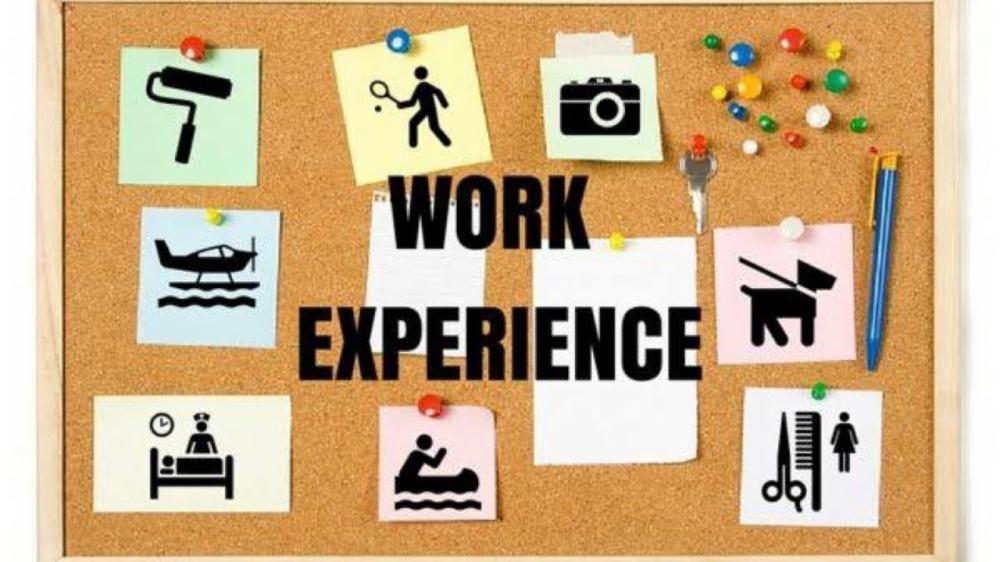
Gaining Work Experience as a student is one of the most valuable steps you can take toward building a successful career. Whether you are seeking to improve your job skills, enhance your work skills, or simply make your work experience in CV stand out, the benefits of practical job experience cannot be overstated.
Having relevant job experience in CV is often the deciding factor between candidates, as employers highly value students who have real-world exposure. Additionally, earning a work experience certificate showcases your commitment to developing essential skills.
Why Work Experience Matters for Students?
Job experience plays a pivotal role in shaping a student's future career by bridging the gap between academic learning and practical application. It provides students with an opportunity to acquire job skills that cannot be fully developed in a classroom environment. Through hands-on tasks, students enhance their work skills and gain an understanding of how businesses operate in real-world settings.
1. Building Key Job Skills
One of the primary reasons work experience is essential for students is that it helps build critical job skills that are highly valued by employers. Skills such as time management, teamwork, problem-solving, and communication can only be fully mastered through practical engagement in a work environment. By applying these work skills in real scenarios, students become better prepared to meet the demands of the job market.
2. Enhancing the Work Experience in CV
Another major benefit of work experience for students is the ability to strengthen their work experience in CV. A CV that highlights relevant job experience in CV is far more attractive to potential employers than one that only lists academic achievements. When employers review a student's application, seeing practical job experience gives them confidence that the candidate has already developed valuable work skills and can apply them effectively in the workplace.
3. Earning a Work Experience Certificate
A work experience certificate is not just a formal document; it is evidence of the student’s ability to handle responsibilities and thrive in a professional setting. This certificate acts as a testament to the job skills acquired during the period of job experience and can be an important asset when applying for future jobs or internships. It demonstrates reliability, professionalism, and a proactive attitude, all of which are critical in any career.
4. Preparing for the Job Market
Finally, gaining job experience prepares students for the realities of the job market. By engaging in actual tasks, meeting deadlines, and dealing with workplace challenges, students develop practical insights that go beyond theoretical knowledge. Employers are more likely to hire candidates who have work experience in CV that shows they can adapt and contribute from day one.
How to Find Relevant Work Experience for Students Opportunities?
Finding relevant job experience opportunities for students is essential for developing job skills and building a strong work experience in CV. Below are some effective ways to find meaningful work experience for students:
1. University Career Services
Many universities have career centers that help students find job experience opportunities. These centers often collaborate with companies to offer internships and part-time roles, providing students with both job skills and a work experience certificate to enhance their job experience in CV.
2. Internships
Internships are a great way for students to gain job experience. They provide practical work skills and often result in a work experience certificate, which can significantly improve a student's work experience in CV.
3. Networking
Networking with professionals can open doors to hidden job experience opportunities. Students can attend career fairs or connect on platforms like LinkedIn to find relevant work experience for students.
4. Online Job Platforms
Websites like LinkedIn and Indeed offer specific sections for internships and Work Experience opportunities. These platforms allow students to filter their search and find positions that enhance their work skills and job experience in CV.
5. Volunteering
Volunteering provides practical job experience while contributing to a cause. It helps students build essential job skills such as teamwork and leadership, which can be added to their work experience in CV.
Balancing Work and Study: Tips for Success
Balancing job experience and academic studies is a challenging but rewarding process for students. Successfully managing both helps in developing key job skills while also enhancing one’s educational journey. Below are several tips that can help students maintain a balance between gaining work experience and excelling in their studies.
1. Prioritize Time Management
Effective time management is crucial for balancing work experience for students with academic responsibilities. Setting a clear schedule that allocates time for both schoolwork and job commitments is essential. By organizing tasks and setting priorities, students can improve their job skills and academic performance simultaneously.
2. Choose Flexible Work Experience
When searching for job experience, it's important to choose roles that offer flexibility. This allows students to adjust their work hours around class schedules and exams. Whether it's part-time work or an internship, choosing flexible roles helps students manage their academic workload while gaining valuable work skills. Additionally, earning a work experience certificate at the end of a flexible job can be a great addition to one’s work experience in CV.
3. Communicate with Employers and Professors
Clear communication is vital for managing both work and study. If you're involved in work experience for students, it's important to let your employer know about any academic commitments that might affect your availability. Similarly, informing professors about your work commitments can help you negotiate deadlines during busy periods. Maintaining open lines of communication helps build strong job skills like time management and responsibility, both essential for future careers.
4. Stay Organized
Staying organized is key to balancing job experience and study. Keeping track of both academic deadlines and job responsibilities ensures that neither aspect is neglected. Students can use digital tools or planners to manage their tasks, which helps them to stay on top of both schoolwork and work skills development. Staying organized also boosts productivity, enhancing the quality of both job experience in CV and academic achievements.
5. Make Time for Self-Care
Balancing job experience and study can be stressful, so it's important to make time for self-care. Taking breaks, staying active, and ensuring adequate rest can help students stay energized and focused. A well-rested mind performs better both in academic settings and in developing job skills in the workplace, contributing to a more comprehensive work experience in CV.

